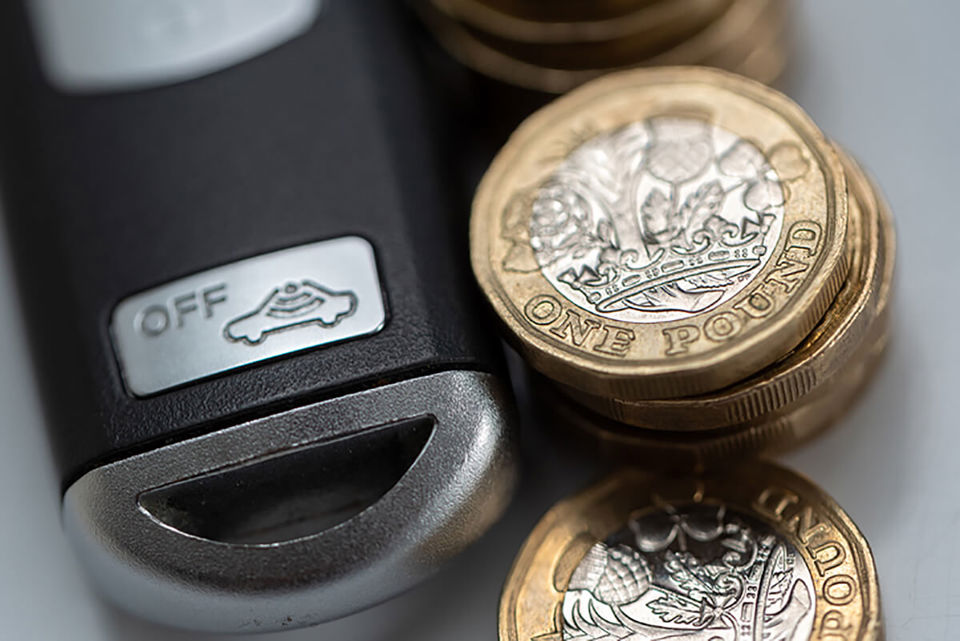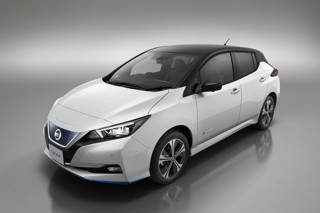Employees in increasing numbers are opting to take cash in lieu of a company car amid year-on-year rises in benefit-in-kind (BIK) taxation, risking the Government’s green agenda.
Delegates to ACFO’s spring seminar were told by Ashley Barnett, head of fleet consultancy at Lex Autolease, that fleet managers faced a loss of control and influence over vehicle-related decision-making, which conflicted not only with Government strategy but with employers’ own sustainability agendas.
At the seminar, entitled ‘Another Year of Evolution’ held at the British Motor Museum, Gaydon, and sponsored by Jaguar Land Rover with support from Lex Autolease and Reflex Vehicle Hire, Barnett said: “Fleet managers should question why their organisation offered a cash or car option and because it had always been available did not mean that it should be continued.
“If a business has a policy around sustainability you don’t want a car policy that is at odds with it.
“The Government is very clear on its ‘Road to Zero Strategy’. It has 31 years to achieve its aim, that is seven car replacement cycles, and fleet managers have the ability to influence change today.”
Highlighting that developing a sustainable fleet policy offered “immense challenges but also immense opportunities”, Barnett urged fleet managers “to be an active participant in change and not a victim”.
Explaining that Lex Autolease had met with HM Treasury officials and provided data on actions the company’s fleet customers were taking in relation to company car benefit-in-kind tax rises, Barnett said he believed “they were listening”.
With the Government continuing to review the shape of future company car BIK taxation from April 2020 ahead of an anticipated summer announcement, Barnett also highlighted that fleet uptake of plug-in vehicles was “way behind the curve” required to meet official targets.
“Fleet managers have the ability to influence change, but it is not about changing the fleet all in one go,” he said. “We can all see that tax is rising, and the Government wants cars to be at the bottom end of the tax structure in terms of emission levels.
“Too many businesses view company cars as a cost and not a benefit, but some policies have become too restrictive.
“Fleet managers have the ability to take back control, promote company cars as a reward and give employees the responsibility to select the car they want. We could then see an increase in company car take-up.
“Company cars should be valued because they provide a hassle-free comfort blanket for employees, particularly in terms of maintenance and insurance.”
Unintended consequences of taking a cash
Mike Moore, tax director at professional services firm Deloitte told seminar delegates that employers should be aware of “unintended consequences” of taking a cash in lieu of a company car.
He acknowledged that some company car drivers may have seen their BIK tax bill increase by as much as 127% over two four-year vehicle replacement cycles. However, distinguishing between ‘perk’ and ‘essential user’ drivers, Moore said: “Employers must be very careful about what the aims are in offering cash and undertake due diligence to ensure it meets business needs and there are no unintended consequences - a higher tax bill for both a company and driver because of the way a deal was structured.”
Anticipating that the Government would publish draft clauses related to future changes in company car benefit-in-kind tax ahead of the summer Parliamentary recess with a final announcement in the autumn 2019 Budget, the fleet industry is concerned at the rising number of employees opting out of company cars.
But, Moore highlighted that company cars offered benefits to both employers and employees.
In respect of employers, benefits included an easier ability to meet duty of care and corporate responsibility requirements as well as harmonised benefit provision at job/car grade level; while for employees the benefits included business/private mileage profile protection, comfort around vehicle service and maintenance and insurance costs being covered and no issue with potentially having to meet credit rating requirements if acquiring a vehicle privately.
He also suggested that establishing the ‘right level’ of cash allowance could prove troublesome - employer or employee neutral with “most businesses going somewhere in between”.
Hoping that the Government would provide tax clarity with its forthcoming announcement, Moore said: “In the next five to six years fleets may come under pressure from drivers to move towards cash, but I don’t think it is the answer for all drivers.”
Diesel has key role to play
Delegates also heard how diesel has a key role to play in fleet operations for many years to come, with the Government urged not to penalise company car drivers for choosing the fuel as it continued its review of future BIK.
An impassioned plea for the Government to ‘play fair’ with company car drivers was made by Scott Dicken, sales director at Jaguar Land Rover.
He said: “The Government has not been in control. Consumers have been supplied with lots of misinformation.”
Highlighting the efficiency of today’s Euro 6 compliant diesel engines, Dicken continued: “We are now getting more sensible discussions. It is no longer the simplistic view that diesel is bad and petrol is good, which has led to some people making the wrong decision about what is best for them.”
While committing that Jaguar Land Rover would have electric options across its model line-up from 2020, he said: “There is a role for the internal combustion engine and diesel because it offers an optimised way to reduce CO2 emissions. Electric vehicles cannot currently replace diesel.”
He believes that the automotive industry had been “a little bit passive” in fighting back at the negativity surrounding diesel. But, he said: “We have established a much closer relationship with the Government and particularly HM Treasury.
“We believe that fiscal policies have created a negative environment that is impacting the industry and taxation because consumers are making decisions that are wrong for the environment and for them personally.
“We are working to educate customers and also influencing Government to make sure they are making the right decisions. The issues are complex, but the key motivator for consumers are the financials.”
Highlighting that company car drivers selecting a new diesel model now paid a 4% tax supplement if it did not comply with the Real Driving Emission Step 2 (RDE2) standard, Dicken said: “The unintended consequence of Government policy is customers are paying more tax when the intent should be to change behaviour without paying more.”
He concluded: “We want distortion of the market to be avoided and singling out diesel is creating negativity. The Government’s CO2 targets will not be met without diesel so we have to have a more graduated approach to tax in the future.”
























Sage & Onion - 01/04/2019 22:39
“Too many businesses view company cars as a cost and not a benefit, but some policies have become too restrictive." I disagree with the above statement. It is employees, not the business, who now view company cars as a cost and not as a benefit because of the current tax system. I'm always fielding complaints from drivers telling me their car is no longer a benefit to them, especially when they use it relatively little for private use. Our policy offers some driver groups a choice of 550 cars so restriction isn't the issue either. HMRC have left it far too late now in announcing the future of BIK on company cars so its no wonder employees are now asking for cash instead of committing to an unknown BIK cost for the last two years of a four year lease contract. If HMRC were truly "listening" to the big guns in the fleet industry then they would have announced something by now. Instead of diesel scrappage schemes, why don't they offer grants to businesses to take their leasing arrangements over a shorter change cycle so that fleets can accelerate their drivers into EV's and PHEV's when all these exciting models we are being promised in 2 years time come to market. Or maybe its time to return to a BIK system that offers a sliding scale discount that increases as the proportion of business miles to total miles increases in order to tax the true benefit of the company car more appropriately.